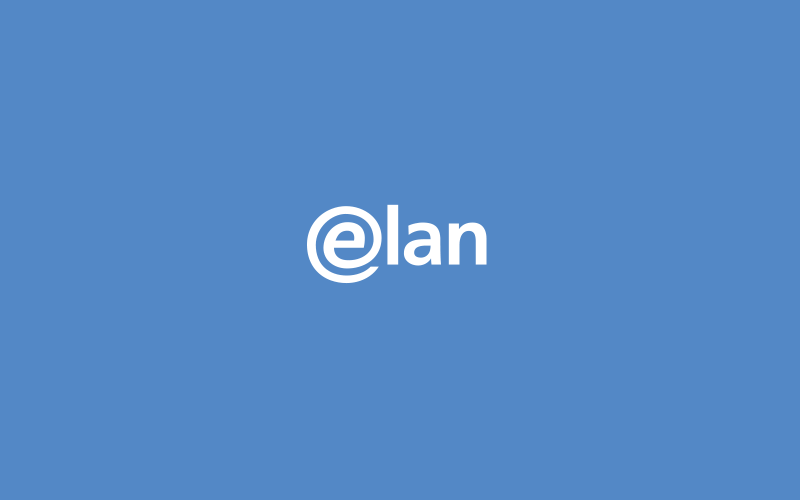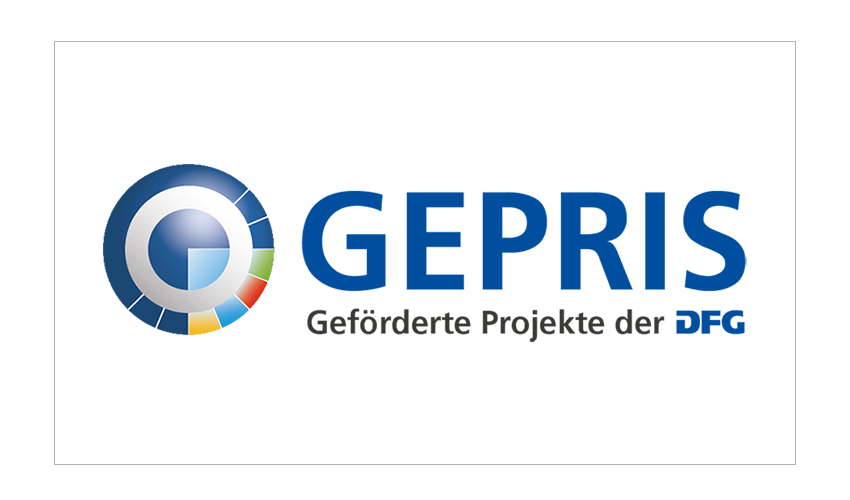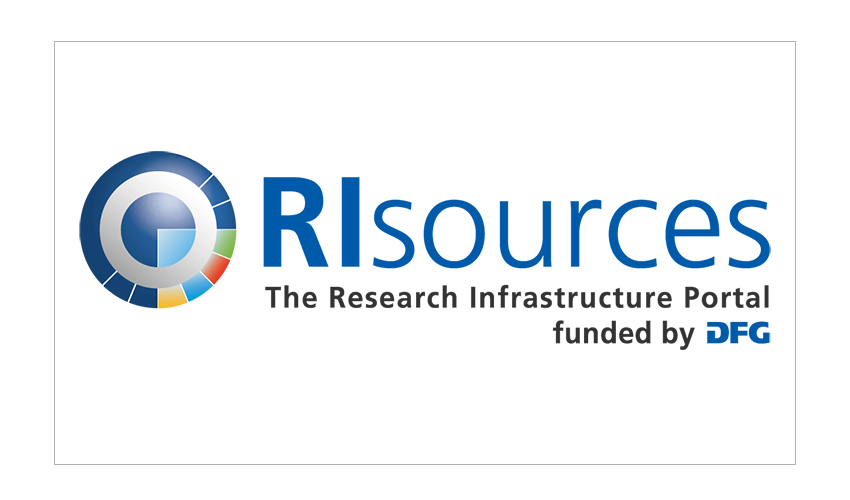General Questions about preparing a proposal
Before actually submitting a proposal, you need to find the right funding programme. You will find helpful information on this on the DFG website, from contact persons at the DFG Head Office and from liaison officers at your university.
Researchers in Germany, or those working at a German research institution abroad, who have completed their academic training (a doctorate as a rule) are eligible to submit a proposal.
In general you are not eligible to submit a proposal if you work at an institution that is not non-profit or one that does not allow immediate publication of research findings in a generally accessible form. Researchers who are employed at one of the institutes or member organisations of the Max Planck Society, Fraunhofer Society, Helmholtz Association or Leibniz Association, researchers working at a publicly funded institute associated with one of these research institutions, and researchers working at international research facilities located in Germany should note the rules on the duty to cooperate.
Please see the relevant guideline(interner Link) for information on the particular eligibility requirements for each DFG programme.
Researchers on fixed-term employment contracts can also submit proposals to the DFG. The proposal must contain the information that the employment relationship is fixed-term and also indicate the date that it ends. The proposal will then be reviewed on the basis of this information. An informal statement from the management of the institute confirming that the applicant will continue to be employed throughout the duration of the project is helpful.
Researchers at non-university research institutions are eligible in principle if they are categorised as "early career researchers". Early career researchers in this context are all researchers who are employed on a fixed-term basis. These proposals must also state that the contract is fixed-term and indicate when it expires. After the employment relationship ends, funds that have been awarded can only be used if there are other opportunities for employment. Applications for a temporary position for a principal investigator are governed by special regulations.
An overview of the DFG's funding programmes and of the guidelines and forms can be found at programme(interner Link).
Our how-to web pages provide insights into DFG individual grants programme(interner Link) and give useful hints for preparing your first proposal to the DFG.
The choice depends on a number of different factors:
Who is submitting the proposal?
Individual researchers submit proposals for the DFG's individual grant programmes, for Research Units and Priority Programmes. Research Units and Priority Programmes are part of the DFG's "Coordinated Programmes". Coordinated programmes promote cooperation and structural innovation by encouraging national and international collaboration in areas of current relevance and by concentrating scientific potential at a university. Proposal(interner Link) for Research Training Groups, Collaborative Research Centres and DFG Research Centres, which are also Coordinated Programmes, are submitted by institutions.
Our how-to web pages provide insights into DFG individual grants programme(interner Link) and give useful hints for preparing your first proposal to the DFG.
What stage of his or her career has the researcher submitting the proposal reached?
Research Career(interner Link)
Is funding required for a single project?
Is funding required for a position as a researcher?
- Walter Benjamin-Programm(interner Link)
- Research grant/temporary position for principal investigato(interner Link)
- Emmy Noethe(interner Link)
- Heisenber(interner Link)
Is funding required for research infrastructure or information systems?
- Scientific Instrumentation - Information Technolog(interner Link)
- Scientific Library Services and Information Systems (LIS(interner Link)
Is funding required for international collaboration?
Once a suitable programme has been chosen, the applicant is offered several modules to tailor the funding exactly to the requirement. These can be accessed via the compact overviews of the programmes.
The DFG has a wide range of options to support international collaborative ventures.
DFG support for collaborative ventures
- Travel funds and guest funds for foreign cooperation partners as part of the basic modul(interner Link)
- Travel funds and, where applicable, remuneration for foreign cooperation partners in connection with the Mercator Fellows modul(interner Link)
- Travel funds for foreign cooperation partners in connection with the project-specific workshops modul(interner Link)
- Funds for project implementation by the foreign cooperation partner under special procedures via transfer of funds on the part of the project leader entitled to apply to the DFG (cooperation with the Middle East(interner Link)and with developing countrie(interner Link))
- In exceptional cases, it is possible for the researcher abroad to apply directly to the DFG to obtain funding for individual research projects in connection with an established DFG Priority Programme or with individual projects being pursued by a DFG Research Unit. In such instances, the project abroad must make an important additional contribution to achieving the objectives of the network and add significant value to the projects planned in Germany.
Support for cooperation provided by foreign partner organisations
- Under calls for proposals with DFG partner organisation(interner Link)
- In the case of the so-called Standing Open Procedur(interner Link) (Weave Lead Agency procedure and others), proposal submission along with European cooperation partners (in the Weave Lead Agency procedure)
In addition, researchers at a foreign research institution can participate as part of a so-called “general international cooperation”.
Further Information
There are certain aspects that need to be considered carefully before submitting a proposal. Some of the questions in the project description under “Supplementary information on the research context” concern ethical and legal aspects: it is important to ensure these are dealt with prior to submitting your proposal. They mainly concern the following points:
If the proposal includes plans to conduct investigations on humans or human materials, a statement issued by the ethics committee responsible generally has to be submitted along with the proposal. This should be applied for as early as possible in order to avoid unnecessary delays. See here for further information relating to specific scientific disciplines:
If the planned project involves the collection and transport of biological material outside Germany, it might fall under the provisions of the Convention on Biological Diversity (CBD). In this event, applicants should familiarise themselves with the applicable regulations in the host country at an early stage and seek cooperation with researchers in that country.
If the planned project involves a significant requirement in terms of infrastructure resources such as instrumentation or information infrastructures, it is important to check during the preparatory phase whether or not these already exist and are usable within the research area. The RISources information syste(externer Link) contains an overview of research infrastructures available in Germany.
If you are submitting a DFG proposal for the first time, we recommend consulting our Proposal Information complete with checklis(interner Link).
The basic principles of DFG funding set out below apply to all proposals. They include good research practice as well as various aspects of diversity, and also legal requirements.
In all DFG programmes, it is mandatory to use the CV templat(interner Link). Exceptions apply to certain international procedures. Please refer to the calls concerned for details. See also the FAQ on CV(interner Link).
The DFG generally grants funding for staff in the form of standard amounts. For specific rates and further details, please see the overview “DFG Personnel Rates”(interner Link)
For research employees who do not hold a doctoral degree, funding of the personnel cost categor(interner Link) “Doctoral researcher or comparable” should generally be requested for positions involving at least 50% of the standard work week. It is also possible to request funding for positions with more than 50%, insofar as this is required to stay nationally and internationally competitive both within and outside the research system.
For the remuneration usually applied in your subject area, please consult the overview of the remuneration for doctoral researchers that is common for the respective review board(interner Link) (in German only).
For further information, please see DFG form 55.04 - Note on benchmark figures when applying for usage cost(interner Link).
The DFG offers applicants and funding recipients the opportunity to voluntarily outline their personal situation in their CV or else confidentially (e.g. in the case of a hardship application). Unavoidable exacerbating life circumstances are taken into account exclusively to the benefit of the applicant. The DFG also endeavours to give appropriate consideration to confidential information submitted to the DFG Head Office which is not revealed in detail in the review process. Examples of this might include unavoidable delays in an academic career due to family obligations (child-raising/care obligations) or due to a serious illness.
For more information on this subject, see:
Publication lists for inclusion in proposals, draft proposals and final reports are subject to DFG-specific rules. In order to ensure that the description of the research project itself takes centre stage, there is a limit to the number of their own publications which the applicant may list.
If the planned project is to involve the systematic collection of research data that is suitable for reuse, the proposal should include a concept for transferring the research data to existing databases or repositories. In this case, it often makes sense to get in touch with the contact persons of the relevant infrastructures during the planning phase in order to be able to ensure that existing standards are applied or any costs incurred for these steps are integrated in the proposal.
Please refer to the Nagoya Protocol FA(interner Link) (in German only).
By submitting a proposal to the DFG, all applicants undertake to comply with the provisions of the German Animal Welfare Act (Tierschutzgesetz, (TierSch(externer Link))) and the German Animal Welfare Laboratory Animal Ordinance (Tierschutz-Versuchstierverordnung (TierSchVers(externer Link))). In the work programme, the experimental design of animal experiments must be described in a clear and comprehensive manner. Particularly the choice of the animal model and the estimated number of animals used must be convincingly justified. In the supplementary information of the proposal, please explain how animal welfare measures based on the 3Rs principle (Replacement, Reduction, Refinement) are implemented in the specific project. The direct link between animal welfare measures and their impact on the scientific validity of the specific experiment is to be considered in particular (e.g. the necessity and validity of the chosen animal model, statistically reliable case numbers, reasonable study groups taking reproducibility and generalisability into account, etc.). Additional information and guidelines are available in the publication "Animal Experimentation in Research: The 3Rs Principle and the Validity of Scientific Research(Download).
This information is mandatory for experiments involving vertebrates, decapods and cephalopods pursuant to §8 of the TierSchG (German Animal Welfare Act) as well as for cases where the killing of these animals is necessary for organ or tissue removal for scientific purposes.
If you require funding for the acquisition, breeding and keeping of experimental animals, the costs must be itemised and explained. For keeping rats and mice, a standard rate applies. There are no standard rates for other animal species.
Here you can access the DFG form 55.03 (in German only(interner Link).
Programme contacts at the DFG Head Office, DFG liaison officers at DFG member organisations and the officers responsible for DFG affairs at non-member organisations provide advice on choosing the right programm(interner Link) as well as on formal questions and other issues regarding the proposal submission process.
If you have any questions about eligibility to apply for early-career funding programmes (in particular the Walter Benjamin Programme, the Emmy Noether Programme and funding via the “Temporary Positions for Principal Investigator” module), please contact the hotline procedures-researchcareers@dfg.d(externer Link).
The DFG is especially committed to serving particular target groups. Among other things, this derives from its statutory mandate to fund researchers at an early stage of their career and to support international collaboration. For details of specific funding programmes and information, see under the headings “Research Careers” and “International Collaboration”. In addition, the DFG supports the interchange between science and potential areas of application by promoting the transfer of knowledge.
In some subject disciplines, certain special points apply above and beyond the general information.
If you are submitting a DFG proposal for the first time, we offer you this overview of the Subject Area Structure and Interdisciplinarit(externer Link).
If you are submitting a DFG proposal for the first time, we recommend consulting our proposal information complete with checklis(interner Link).
The documents you need for your proposal depend on the funding programme you have chosen. However, all DFG proposals share a single basic structure. ela(externer Link) will guide you step by step through the proposal process and display all the required documents:
- guidelines containing full details of the funding programme
- proposal preparation instructions to help you fill in the “Project Description” and the supporting documents
- a template for the required Appendix B “Project Description”
Your proposal always consists of the three parts A, B and C along with optional supporting documents.
Part A – Proposal Data and Obligations
- Information on the project in German and English (e.g. title, summary, keywords, planned funding period)
- Subject area allocatio(interner Link)
- Information on the persons and institutions involved
- Modules and funds applied for
- Declarations of commitment
- This data is stored directly in ela(externer Link) via form fields. It is not possible to submit them as separate PDF documents.
Part B – Project Description (Appendix B)
- Appendix B is the core of your proposal: the detailed description of your research project!
- The information required in the “Project Description” includes the following: Status of research and preliminary work, objectives, work programme, duration, modules applied for and funds.
- Please use the current version of the “Project Description” template for your proposal.
- You can prepare this document at your leisure and upload it as a PDF after you have completed Part A.
Part C – Curriculum vitae (Appendix C) and other supporting documents where applicable
Submit your proposal via the DFG's elan porta(externer Link). Generally speaking, there are no deadlines for individual proposals. If you make a submission in response to a call for proposal(interner Link), however, the relevant deadline for submission applies.
When submitting a proposal, you select the appropriate primary subject area allocation yourself from the DFG subject area structur(interner Link). Often a project will touch on several subject areas, so you can optionally select (one or more) additional subject areas for the allocation. The process is flexible and involves multiple stages, ensuring that competition is as fair as possible for interdisciplinary proposal(interner Link), too.
Proposals can be submitted in English or German. Opt for the language that is commonly used in your academic discipline. English-language proposals are welcome because this enables access to a broader group of potential reviewers. As a result, it is easier to avoid any potential bias.
For information on this, see the Sex, Gender and Diversity in the Life Science(interner Link).
The project summary deserves special attention. It is not only used in the proposal itself but is also incorporated in the project description which is entered in the DFG project information system GEPRI(interner Link). Since it functions as the central information text for the project, it should be available in German and English and written in generally comprehensible language.
The DFG asks applicants at DFG member organisations to inform the DFG liaison officer at the institution in question that they are submitting a proposal (applicants at non-member organisations should inform the officer responsible for DFG affairs).
The decision on whether to fund a research project is based on the principle of competition. The DFG has developed a multi-stage procedure so as to provide funding for the best projects from among all the proposals received.
The decision-making procedur(interner Link) involves a separation of review, evaluation and decision. The researchers elected by the communities to the review board(interner Link) always have an essential role to play. The mechanisms that apply to proposals submitted for individual grants differ from those submitted under coordinated programmes.
Every decision on a funding proposal is ultimately derived from or based on a decision made by the Joint Committee or another DFG decision-making bod(interner Link).
The DFG Head Office coordinates these procedures.
Once you have submitted your proposal, you will have to be patient for a few months. You can check the status of your proposal at any time in your elan user account.
Once the decision has been made, applicants receive written notification from the DFG Head Office via elan. The letter of approval or rejection is also accompanied by all reviews (in anonymised form) as well as notes from the deliberations in the committees. It is only possible to approve about one third of the proposals submitted to the DFG. For the Emmy Noether Programme, the figure is less than 20 percent. The reviewers are often fundamentally positive in their attitude towards the projects. A rejection is less a reflection of your previous research achievements or aptitude to run your own project than of the DFG’s limited budget and the highly competitive situation in your research area.
Under Statistic(interner Link) on the DFG website, you will find a wealth of facts and figures, also on such things as processing times and success rates.
Every year, the DFG updates many of its key facts and figures about fundin(interner Link). It regularly evaluates its funding activities and publishes reports and studies, such as those on research funding and career path(interner Link).


